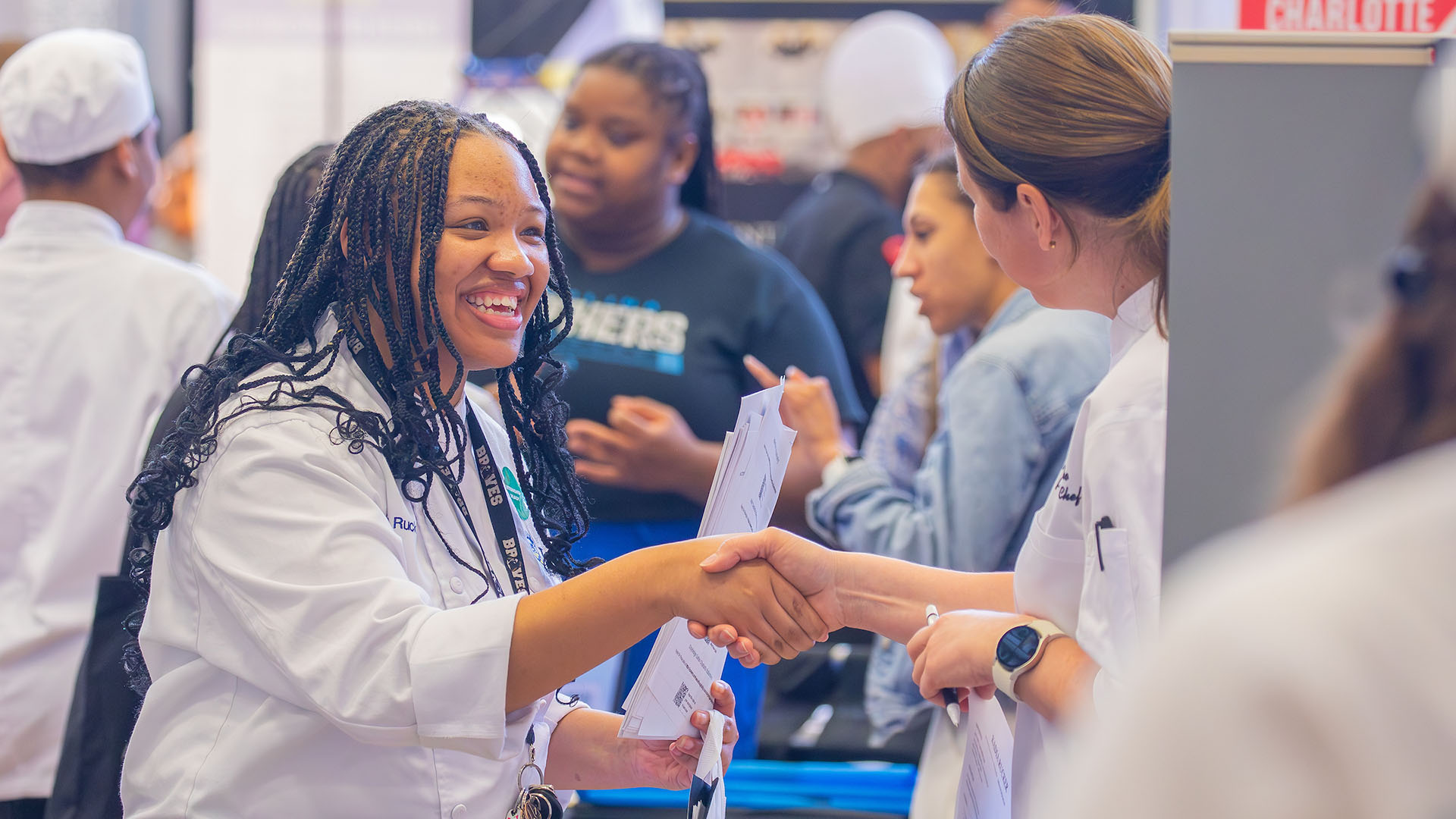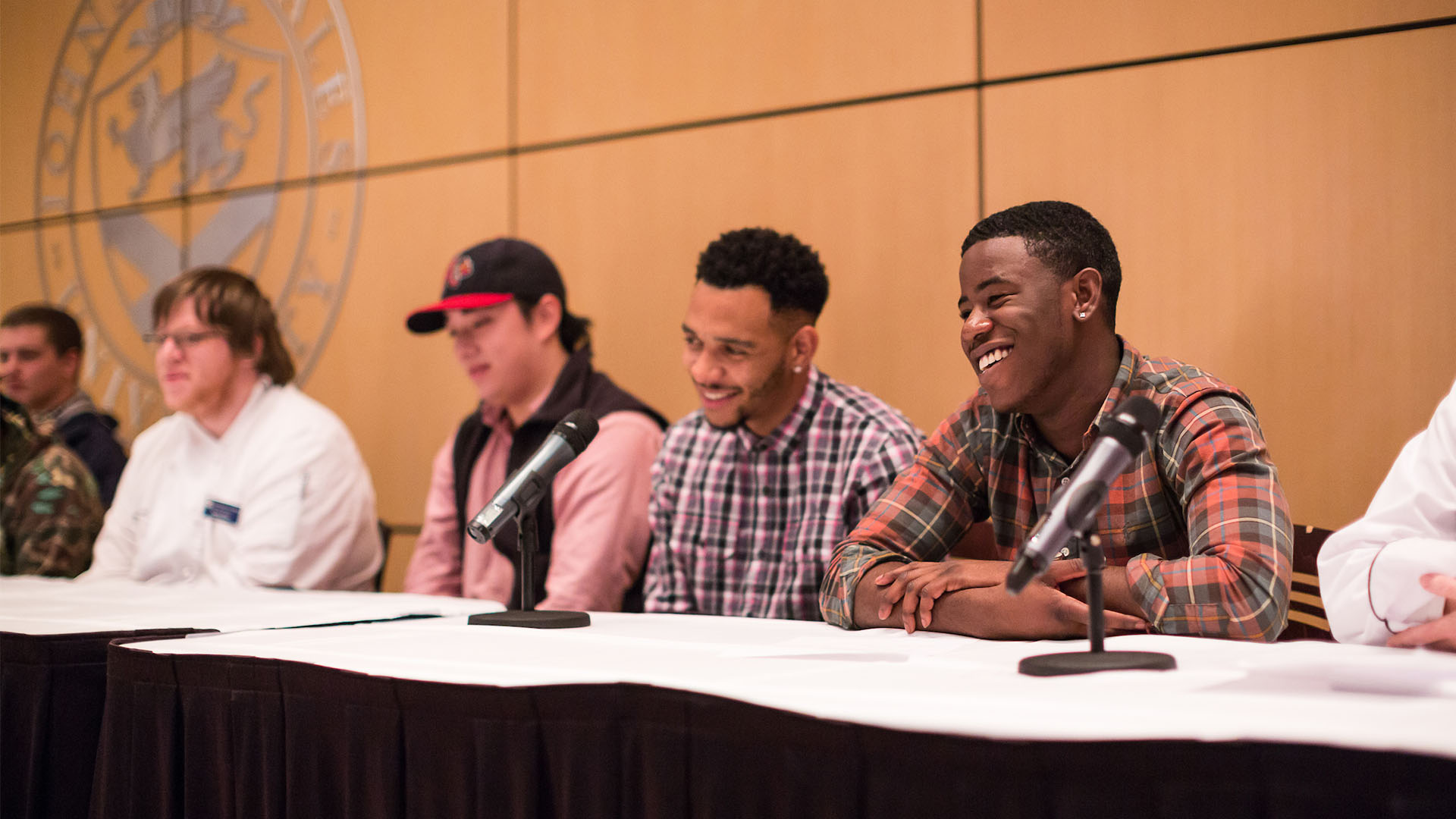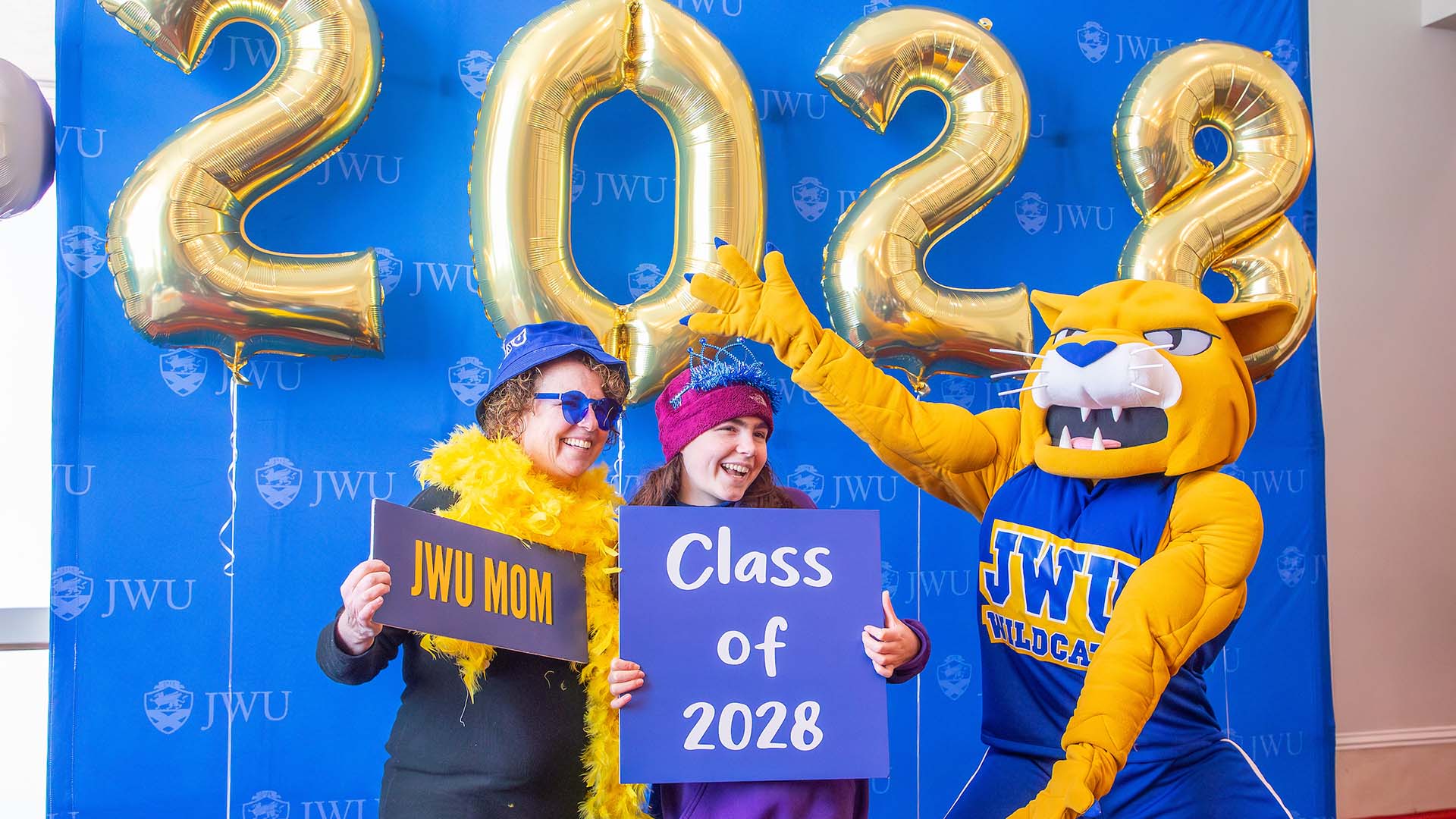Students Gain Insight into the Future of Technology in the Food & Beverage Industry
Author Julia Shiels '24 is a Graphic Design major and works as a student assistant at JWU, contributing to JWU News.
The world of hospitality is fast-paced and ever evolving. JWU students in the College of Hospitality Management are always learning how to keep up with that evolution. Last month, the college hosted the Food & Beverage Technology Symposium which focused on the role technology is playing now and how the industry will adapt in the future. Students enjoyed a lively panel discussion featuring five industry professionals as they answered the biggest tech questions the industry is currently facing.
Panelists:
- Tim Brown, Vice President of Global Solution Engineering Food and Beverage, Oracle
- Carissa De Santis, Chief Technology Officer, BRIX Holdings, LLC
- Nikko Jaatinen, Founder and CEO, JAMIX Kitchen Intelligence System
- Joe Nolan, Founder and CEO, BarVision & Eagle Energy
- Christopher Munz, Vice President, Growth for Voosh, Hospitality Tech Consultant
Moderated by Ron Blum, Associate Professor, JWU College of Hospitality Management
Q: What do you feel the extent of artificial intelligence (AI) in our industry will be in the next five years?
AI is a topic people are either very excited or very concerned about. With it being so new, there are a lot of questions left unanswered. Christopher Munz offered the perspective that AI can help us run a better business by giving us more time to handle the creative side of things and let AI do the time-consuming tasks such as organizing data.
“That's the opportunity for us as restaurant operators,” Munz said. “We can come up with ideas, what we want to do with the data and how we want it to apply it to the businesses that we’re running. Dealing with the online experience, I think there's ample opportunity to try to figure out how to actually make money using data and making sense of it, and then letting the robots do the robot things and the humans do the human things — AI allows for just that opportunity. So, I think it's really applying your knowledge and your ideas to what you want to get out of it and the outcomes expected. I think we've created so much data, and now we're offered the opportunity to use tools like ChatGPT to make sense of that data and help us make better business decisions.”
Nikko Jaatinen added to this idea, explaining that people should not worry about AI taking their jobs, as technology has been developed in the past that functions like humans, but we still require those jobs.
“It's like having dishwashing machines, or robot vacuum cleaners, or cruise control in our cars,” Jaatinen explained. “Those are robots, and now they're getting better. Despite having these, we still have a need for drivers and human dishwashers. I think AI is the same. So, it's going to help you. I think you can now concentrate your actual quality of work by providing better service for customers.”
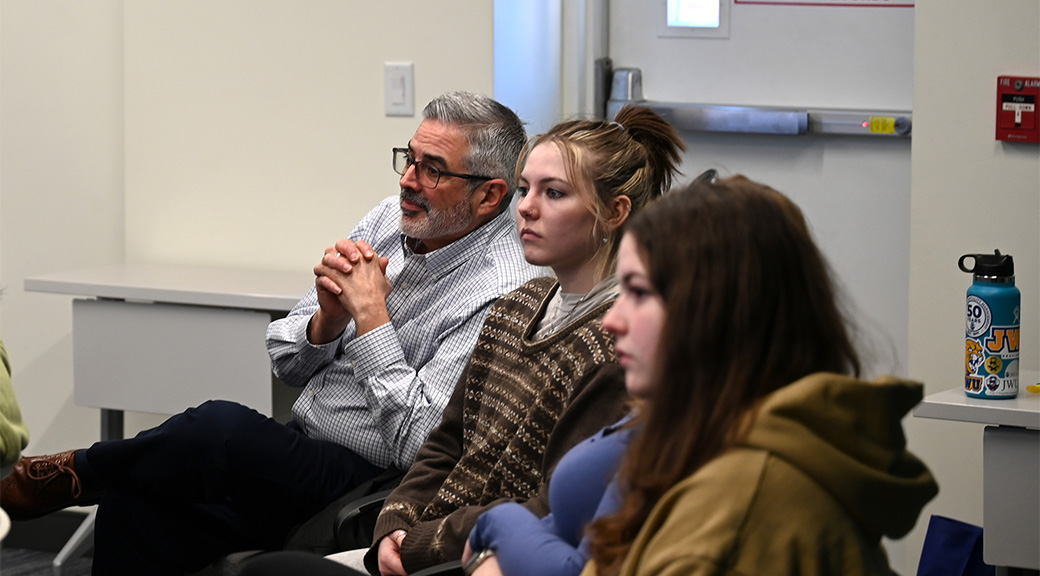
Q: How is technology going to change the roles and responsibilities of future managers and employees?
To answer this question, Carissa De Santis used her own personal experience as the chief technology officer at BRIX Holdings to demonstrate how technology has impacted her company and how it will change peoples’ roles.
“We recently brought in a point of sale (POS) system that is iOS based,” De Santis shared. “In my opinion, anybody who has a smartphone can easily use the POS. I don't know if any of you have ever gone through a POS conversion in your lives, but it's not a fun thing to do. Any change in the restaurant industry is a catastrophic change. But we were able to accomplish installing new technology in our location in six months’ time, which is a very escalated timeframe, and we did it all with 100% remote training.”
Updating the system with new technology proved to be an excellent choice for efficiency and matching employee skillsets. “It’s the younger generations that are working for us, so putting in technology that they know how to use easily and will help them do their jobs faster is important,” De Santis continued. “We can add online ordering, or we can integrate different vendors because all that technology is there. Jobs are going to be easier because all that technology will be there to assist them.”
Q: It seems there are two sides to the story: are we replacing jobs with technology, or is it just getting more difficult to find staff?
As companies put robots in place, it’s easy to wonder whether they are simply replacing jobs, or if the company is forced to use this technology because they can’t find the staff. De Santis provided insight into this question with another story from her work about Luigi, a robotic arm whose job is to make pizza.
“One of the brands that we launched last year is a Pizza Jukebox, and we have a robotic arm,” said De Santis. “That robotic arm's name is Luigi, and he makes your pizza for you. He will take the pizza out, do all the toppings and put it in the oven. We’re starting to see more restaurants adopt robotic or automation technologies because they're less expensive than they were five years ago. COVID also completely decimated the workforce in our industry. We lost over a million workers and haven't gotten them back, but we still have to run our businesses. We still want to stay open, make money and serve customers. So, we're using robotics and automation across the industry to take away those mundane, repetitive tasks so that we can get out there and be hospitable.”
De Santis went on to provide a great example of how technology can provide more jobs, not replace them.
“The example that I gave earlier today was the ATM,” she said. “The ATM was invented in the early 1900s. People thought ‘ATMs are going to take away jobs, all the tellers are not going to have anything to do and it's going to be awful.’ And it was the complete opposite, right? It allowed banks to go out into rural areas and regions where they didn't have staff to be able to build banks because now they have this machine that's going to do all the mundane work and then they can staff it with a couple of tellers. So, it did the complete opposite. But, I think it's a double-edged sword. There's good and there's bad with technology, but it is what you make it.”
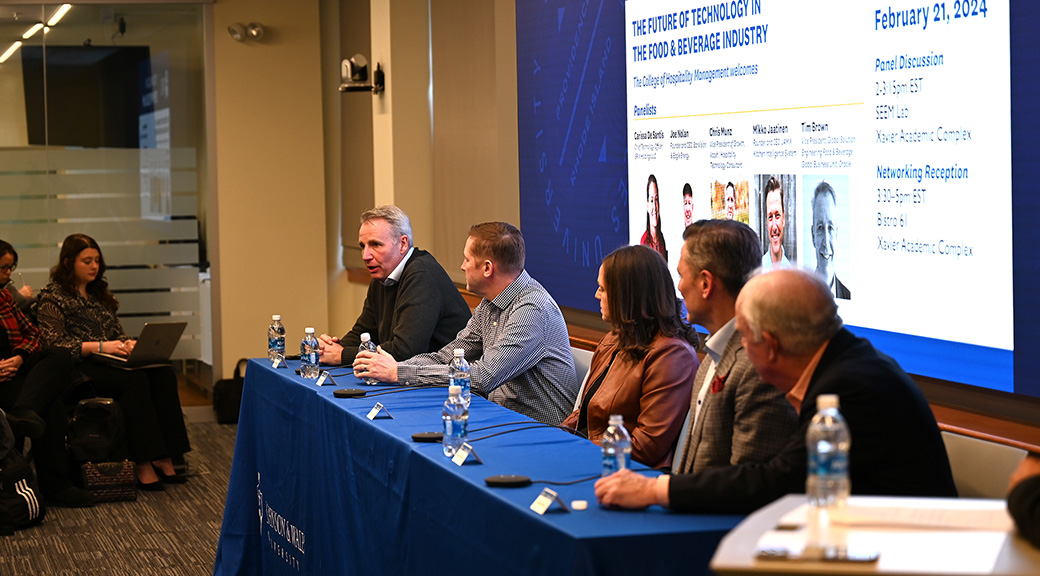
Q: When is enough data enough?
Over the last few years, companies have started collecting tremendous amounts of data, to the point where they don’t know what to do with all of it. Between loyalty cards tracking everything from purchases to online surveys, some companies have more data than they can handle. Munz talked about “analysis paralysis” in his response to this question.
“I think that analysis paralysis is a real thing,” he said. “It's like the movie Pulp Fiction — it starts with the end and ends with the beginning. With data, it's kind of the same principle, you have to start with what outcome you want to get out of it and where to find the answers for that. You have to backtrack a bit, and you can’t start with the big picture idea. Otherwise, you're just going to sit and stare at numbers on the computer.”
Q: What advice would you give to the average 20-year-old hospitality student about the future?
The panelists all had similar pieces of advice when closing out the panel discussion. They all expressed how important networking is, especially in the hospitality industry.
“Within this industry, everybody's trying to move it forward. I think there's just a land of opportunity. As you said, we are an e-commerce business now, which allows us to explore even more opportunities. I think it's wonderful,” shared -Chris Munz
“Network, get out there and meet people in the industry, reach out, connect, join local groups, anything that you can do to make your circle larger,” said De Santis.
“Hospitality, more so than any other industry, is about the people and the relationships that you build.”
Professor Michael Sabitoni closed out the panel with a statement encapsulating the goal that the speakers as well as the faculty in the College of Hospitality have for its students. “This is just the beginning when we stop and think about technology and what technology will be in the future,” he said. “This generation of speakers before you are making sure that you’re well prepared as you enter this growing industry.”
